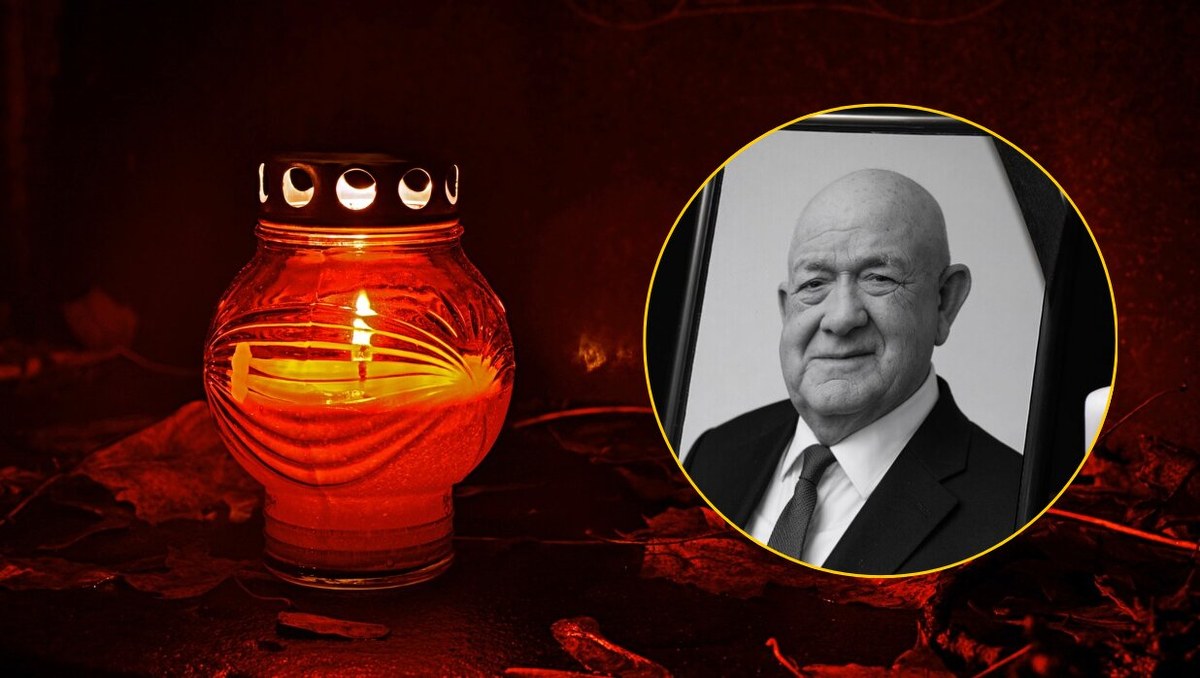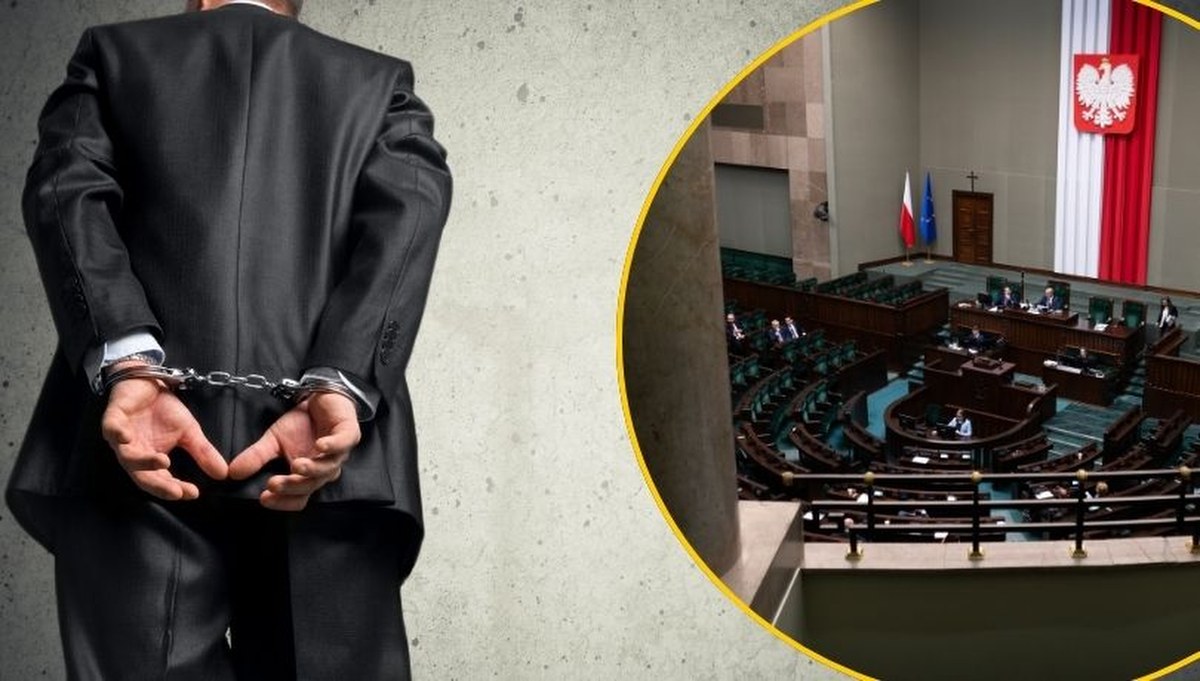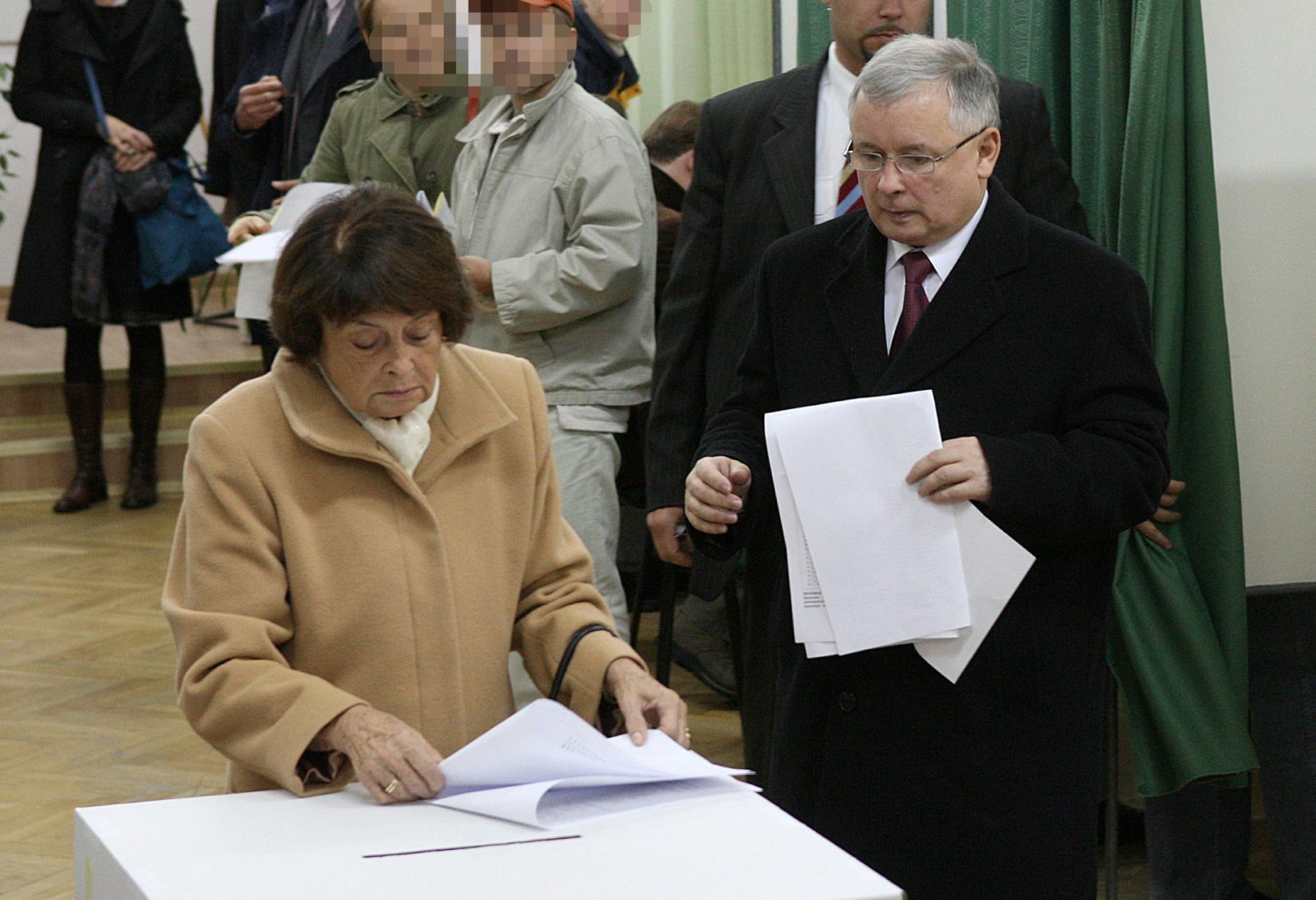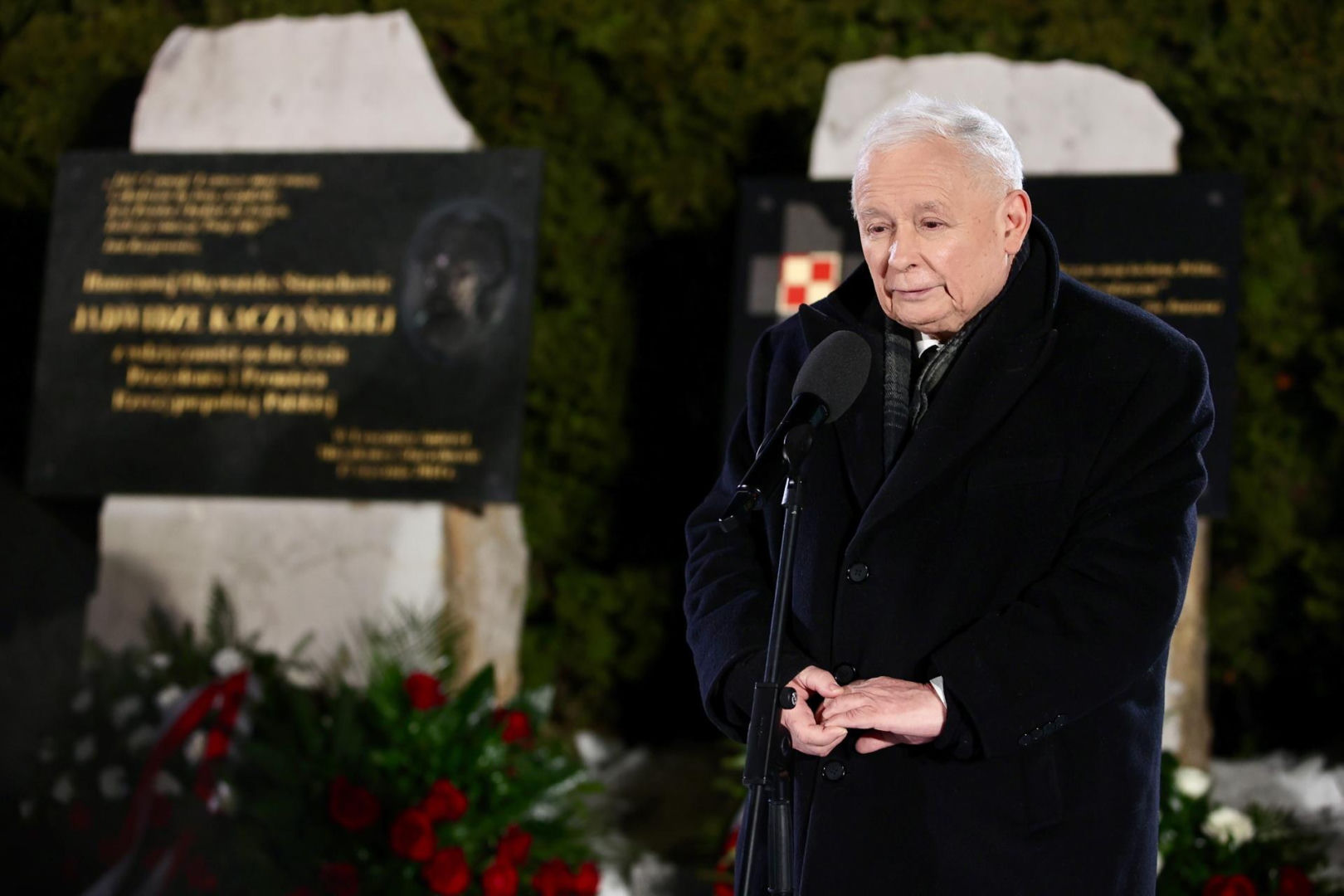Jan Maciejewski in the book “Nothing! Why must Poland's past repeat itself?” (Kraków, 2025) put up a bold but unfortunately actual thesis that along with the dismemberment we were deceived as a nation of romanticist lies.
The false perception of our place in past and Europe has organised us a reality for 2 100 years, pouring into the cursed ritual of the victim: from Somosierra, by Poniatowski in Elstera's currents, the defeat of the Warsaw Uprising, to Katyń death pits and Smolensk disaster – we read on the cover. "The return of the scapegoat mechanics in modern Europe is due to the fact that the Christian symbols have lost their binding power, have ceased to affect imagination. So it returned to mythological structures and reflexes, abolished, invalidated on Calvary [...] That's why there was a founding execution in the First Republic. And for the same reason, Poles began to offer their own sacrifices on the altar of Homeland. They died so that Poland could be [...] All of this must have happened due to the fact that non-sacrifice space is impossible" (i.e., p. 291). In order to realise what Maciejewski writes – with any geopolitical disinvolvement – it is essential to mention to Greek philosophy, which was the first to decision from story to science. technological imaginations explain human action differently than mythological ones.
Plato, in the State, has already noted that “the perfection or virtue (arete) characterizing a given thing is what makes it a good thing [..] In general, the function of the soul is to live and reflect on what choices and decisions let a good life. The sign of the greatness of the soul is the efficiency of meditation, the highest of which is manifested in that man makes wise decisions throughout his life. specified a man is blessed and happy” (Emma Cohen de Lara “The Harmony of the Soul – a classical consequence to times of crisis”, in “Platon on Wall Street”, Krakow 2010, p. 391). According to Platoan Socrates, the perfect soul is characterized by a peculiar kind of interior order. A sensible part of the soul (logos) directs the most intellectual part of the lust (eros) in life – liable for the pleasance of drinking, eating, sex, etc., with the engagement of an angry or temperamental part (thumos). "Thumos is simply a kind of emotion that could be called justified anger or anger; it is simply a part of the soul that makes our actions full of emotion. This kind of sensitivity can be observed in young children. This is the way they respond to breaking a promise, stealing candy, etc. It is simply a sense of injustice related to feelings of honor and shame [...] The temperament is so a helper of a reasonable part of the soul, which, despite wisdom, lacks energy and physical strength to order decisions and desires. In a decently functioning soul, impetuous anger is an ally of reason" (i.e., p. 392). Emma Cohen de Lara notes that the temperamental part of the soul is least known to modern thinking.
Later authors will separate in this power 5 emotions: courage, fear, hope, despair and anger, unleashed by the designation of the threatening or already present sensual evil (threats, difficulties, etc.) and emphasize the servient function of these fighting emotions towards lustful feelings (video: Thomas of Aquinas, Suma Theological I-II, q.23). "The transition from instinct to utility judgment, namely the penetration of purely sensual, instinctive power by the intellect, is the most crucial process in the improvement of human psyche. The delayed or incorrect penetration of this power by the intellect results in a psychopathic personality; premature or excessive penetration leads to repressive neurosis” (Anna Terruwe, Conrad Baars, " Psychic Integration", Poznań, 1989, p. 25).
The reason for the three-difference of the soul (logos, eros, thumos) is the rule of opposites, because, as Socrates argues, “one and the same would not like to experience the other states at the same time in relation to the same object.” With only desire, man could not be disgusted with the poison or refrain from drinking it. Therefore, according to Plato, a man who is simply a slave to his passions is doomed to their eternal conflict. interior harmony can be achieved by imitating those who already usage reason. "With pleasure, initially by imitating others, and continuing this habit, the soul can internalize this pleasance and begin to be satisfied with the interior orders of the intelligent part of the soul. Emotions and desires become flexible adequate to enjoy working with reason" (Emma Cohen de Lara, Ibid., p. 400). Rational psychology after Plato was developed by Aristotle and after him in an unsurpassed way to this day by St. Thomas of Aquinas (unbelievers urge mentioned issue 23 with prima secunda Sumy Theologi). The practice of Catholic interior life is based entirely on imitation of saints and meditation (mind prayer), precisely according to rational psychology methods. "Appetitus sensitivus natus est obedire rationi", i.e. the nature of sensual desire is that it is guided by reason (ST I-II, q.74 a.3 ad 1).
Unlike the Catholic approach and Greek classics, modern pedagogy does not separate between reason (logos) and senses (eros and thumos) and alternatively of following it uses conditionality (video: Paolo Lionni, "The Leipzig School and the systematic demolition of education", 2020). Thus, classical education gives way to training and this despite the findings of neurocognitives, rehabilitating classical virtues and patterns. "Computer metaphor of the mind, began to yield to the places of cognitiveism of the next generation, referred to as the head of the embodied and embedded in culture and social interactions, "(Matthew Hohol, “Towards a unified cognition of the mind: inter-branch theories in cognitive sciences”). Following the Nominism David Hume (1711-1776) The tradition of contemporary psychology proves stronger. According to the Scottish philosopher, the planet is completely random and there's nothing to look for. There are no general aspects of reality that can be recognised. If we anticipate to break a glass after a cast brick, it is only the consequence of our habitation to specified a alternatively than another impressions. If a brick alternatively of breaking a glass, bloomed with a bouquet of flowers, it would be precisely as “understandable” due to the fact that the same would be a sensual experience. There is no place for a probability account, i.e. a case in Aristotle meaning to cut uncoordinated (i.e. non-exchanging information) causal sequences. Similarly, as there is no reason itself, which remains an association of sensual sensations.
If the empirical sense of reason is not different from the senses, then the sarchized sensual desires produce the conflicts Plato wrote about. present they are more known for psychoanalysis Sigismund Freud (1856 – 1939). The Austrian psychiatrist describes conflicts between biological urges (id) and cultural patterns (superior) that make up the human psyche (ego). In his view, it is simply a permanent conflict of biology with culture understood as perverse biology. The only way would be to get free of culture. due to the fact that this would be socially destructive, in practice human ego (self) is the consequence of a compromise according to the "principle of reality". We find here without problem spiritual conflicts recognized by the ancients; mainly Eros, as a desire for pleasance (Lat. appetitus concupiscibilis) with Platoan thumos (Lat. appetitus irascabilis, another names: power of anger, drive of struggle, drive of utility, etc.), but besides feelings of anger itself (responsibility, fear, hope, despair, anger) among themselves. Angerful power as close and susceptible to the penetration of reason (the utility judgment) was identified by Freud in the spirit of Hume with culture, and especially with Freud’s death drive (Thanatos) present in it. She rightly noted, then, that Emma Cohen de Lara, quoted above, was the least known to the modern way of thinking. ‘If ... Freud attributes repression to the actions of certain norms, moral or social, which, by its controlling function, make any feeling of desire for pleasance intolerable to man, he is right about cases where moral norms are interpreted by the individual in a sensual, non-intellectual manner (which is average in children). But it is incorrect if moral norms are interpreted correctly: as rational principles, referring to reason and will. Freud did not introduce this distinction. It can be assumed that he was not even aware of it" (Terruwe, Baars, “Integration...”, p. 53). He couldn't have been aware of them. In view of culture as a sexual perversion, he did not separate Logos from Eros.
According to Freud, the culturally transmitted conflict is religion. The primal Horde was to kill the monopolizing sex dominant male (this phenomenon actually occurs in chimpanzees flocks) and then the guilt (fear) against the background of the committed execution turned into a cult of tribal father (religion). Thus the consciousness of guilt, which plagues all mankind (the first sin), became the seed of social organization, religion, and moral limitations. religion (culture) in Freudian terms is so a social nervousness. This is precisely the case with anxiety nerve masked energy (re brave). "This kind of nerve is fundamentally an anxiety disorder. Like another anxiety neuroses, it begins with a profoundly rooted anxiety that begins to make as early as childhood. Since this fear causes repression of pleasure, it cannot make from a average way [...]. As fear grows, this is usually due to factors of a dominant intellectual nature: a sense of work and duty, and the resulting request to fulfill their own expectations. This concern to do what should be done is indeed besides a fear” (ibid., p. 95). The common denominator of all Freudian neurosis is that they are devoid of nonsubjective sense (logosa). They are the clash of the blind, the desires of the possessed intellect into myths and symbols.
The same can be said about the Polish “romantic lie” presented in Maciejewski's book. It is illustrated by the figure of Prince Joseph Poniatowski: “He saw Elstera, a river in which he would die. A death so picturesque, it's unbelievable. He realized that there was a chance of purification. Names, in fact names, too. But the dirt that had been covering him for many years with subsequent layers reached much deeper. Kisses of withered lips, drinking to death, insults of fellow countrymen, queues to Prussian offices; and yet this name. Joseph felt he had a dirty soul” (“Nothing...”, p. 105). The mythographic figure of Poniatowski illustrates the effects of Plato's Thumos, as well as Freudian Tanatos.
“He knew that he could not get over this river: he rode a horse, not a pegasus. But in this last leap – his last gesture, from which he was remembered more than anything else – there is no suicide resignation. He doesn't fall down into the river, he doesn't unknowingly slide off a horse. He performs a jump on it that could not succeed—probably he is already fatally wounded—but as if he truly wanted to fly on the back of the animal to the another bank” (ibid., p. 121). little romanticist descriptions state that the horse under the Duke of Pepim simply drowned, having his head tied with the handiwork utilized at the time to get the right bend of the horse's neck(!). But the story is important, not the actual course of events. “Parias became holy, anointed by God and past king. The posthumous worship of Prince Joseph is the first loud “yes” that Poles have pronounced to the founding execution of the partitions” (i.e. p. 125).
Poles chose the function of sacrifice most often, but there were besides desires to fill themselves as a torturer. According to Maciejewski, romanticist imagination Jarosław Marek Rymkiewicz It plunges into specified archaic pre - Christian sacrificial myths. "No 1 so decisively and at the same time convincingly encouraged Poles to form a revolutionary, archaic and first crowd. To carry out the founding murder, to start your past again, to put them on the victim's own blood. It would be best to do so like the French, killing the king” (ibid., p. 261). Both pagan versions of the story are to be attributed to the atrophy of Christianity. “When the holy symbols of Christendom evaporated from the Western imagination, a shadow of an unanswered mass hung over our world. Under his cover blood sacrifices began to return" (ibid., p. 292).
Maciejewski believes it is appropriate to agree. However, it is crucial to explain how the Christian imagination in a Catholic country occurred. This can be done if 2 factors are taken into account: the laickness of Polish elites and the character of Polish Catholicism. The traditions of Polish intelligence originate about from the four-year Sejm period, which means that they are powerfully influenced by the secular ideas of Enlightenment. "Biskupi and Polish priests were in a immense part of peasant sons. It was the only truly believing layer in Poland" – he noted Józef Bocheński "Between Logic and Faith. Jan Parys talks to Józef M. Bocheński”, Warsaw 1998, p. 185). Polish Catholicism, on the another hand, resembles Orthodoxy. It is equally ceremonial and emotional. Salvation is seen in the upheaval, which usually becomes a straw zeal, not reminiscent of the Catholic, ascetic “road to Mount Carmel”.
It does not attach importance to dogmas and intellectual content of faith. “Our tradition church was non-intellectual. Poland survived disasters: Tatar raids, urban depopulation, German flood, etc. And after the disaster begins the renewal led by 2 orders: Dominicans and Franciscans. [...] Franciscans are much more numerous, they are a folk order, they have for 2 centuries overtook the Polish soul [...] this is simply a law aimed at heart and affection. They formed Polish religion. Then came the second catastrophe: Protestantism, Reformation [...] I think [...] that more than half of Polish intelligence was Protestant at the time. Almost everything that was bright was Protestant" (ibid., p. 186). It was no accident that Poland was religiously tolerant in the 16th century, which the Catholic Church did not accept until the Second Vatican Council (1962-1965). The period of counter-reformation does not change this picture. “The large man, Hosius, bishop of Warmia, brought the Jesuits. And the Jesuits see that the Polish soul is overran by the Franciscans, that its religiousness is sentimental. The Jesuits, who are rationalistic everywhere, have become highly sentimental in Poland [...] The Jesuits are militant boys, founded by a military captain. In Poland they ruled souls, dominated for centuries” (ibid., p. 273). It is not by accident that the most outstanding Polish contribution to Catholicism is “Gross Regrets” and specifically Polish is the spiritual motive of the frivolous Christ, nowhere another than Poland.
In this way, it is explained why the rare, devout intelligent will defend Mickiewicz's "orthodox" or Slovak, like Bishop Szczęsny Felinski in written after the conversion of "Memoraries". And we won't be surprised. Czesław Miłosz amazed to see that there is no Catholic literature in a Catholic country. It will become understandable to complain to Witkacy about the deficiency of a head for metaphysical problems in Poles, and a somewhat shocking opinion of Stanisław Brzozowski about the unreligiousness of Polish thought capable of causing despair. It will be confirmed that the Polish Catholicism fundamental to the West is ‘science and religion’, fundamentally not in Polish spiritual consciousness (again likeness to Orthodoxy).
Poland took over Catholic liturgy and ceremoniality but poorly assimilated the content that this liturgy carries. While the liturgy exists due to the sensuality of man, the content it transmits is not sensual at all. To Eric Voegelin We can say that spiritual or ideological order cannot be passed directly, but only through symbols. Catholic order does not let ontology to destruct the mention to Logos. 1 is utmost empirism. By negating the difference between senses and reason, it causes the symbols to mention to themselves, that is, impressions, and emotions from which they are made, de facto not to be symbols.
It is so crucial to avoid the mistake of identifying religion with the political ideology that the deficiency of a sharp line between them leads to. We hazard that the political tradition of the Catholic state, specified as Poland, will be removed from the Catholic political sense and filled with pseudo-religious myths.
Vladimir Kowalik
Przemyśl Poland, nr 21-22 (25.06-1.0025)













![„Społeczeństwo islamu nie jest zdolne do reformy” [Ferghane AZIHARI]](https://wcn-media.s3.us-west-004.backblazeb2.com/2026/02/ahmadardity-quran-4951042_1920.jpg)

